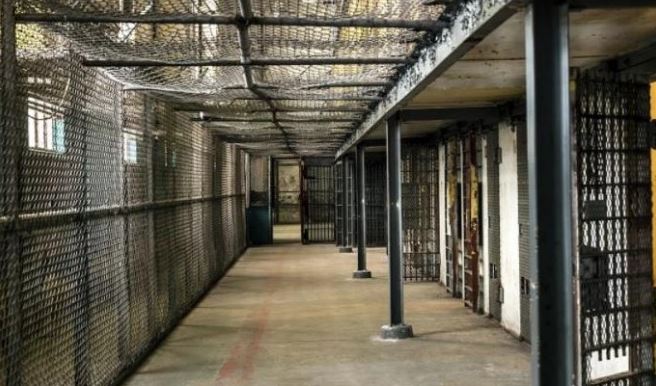Torture of Palestinian prisoners: Time to end Israel's impunity

By Tal Steiner
On 25 September 2019, a Palestinian man was arrested by Israeli soldiers and transferred to the Russian Compound detention facility in Jerusalem for interrogation by Israel’s internal intelligence agency, the Shin Bet.
Samer Arbeed’s arrest marked the beginning of a wave of arrests in the ensuing months throughout the occupied West Bank. Later, media publications would describe this operation as a crackdown on the Popular Front for the Liberation of Palestine (PFLP), which was allegedly linked to the murder of Rina Schnerb, a young Israeli woman killed in a bombing attack earlier that year.
The Shin Bet was eager to expose the alleged PFLP network - perhaps too eager. For two days after his arrest, Arbeed, who had been otherwise healthy at the time of his arrest, was brought to Jerusalem’s Hadassah hospital in critical condition, suffering from kidney failure and broken ribs. He was placed on a respirator until his condition stabilized, and then, to the shame of the military court that approved it, sent back to the custody of the Shin Bet.
Severe pain and suffering
What happened to Arbeed between his arrest and his arrival at the hospital is an open secret: all signs indicate that he was tortured by Shin Bet agents. He and other suspects were reportedly forced into “stress positions” used routinely by Shin Bet agents, as documented in hundreds of testimonies gathered by the Public Committee Against Torture in Israel.
One such position is the “banana”, in which the subject of interrogation is bent over a chair, hands and legs chained together underneath; even a few minutes in this position can cause severe pain and suffering, without leaving visible marks. But forensic medicine shows that kidney failure can be associated with the use of stress positions, where the strained muscles release acid into the bloodstream that the body cannot handle.
Our expectation was that when a person was brought to near-death while in the hands of the Shin Bet, the Israeli legal system would jolt into action, investigate and press charges. Otherwise, how could Israel maintain that torture was prohibited in its territory and that perpetrators would be held accountable?
Indeed, Israel’s attorney general ordered an investigation into the matter, but it concluded on 24 January with a decision to close the case “in the absence of sufficient evidence to prove an offence”.
A dangerous message
On the one hand, why should we be surprised by this, when according to data collected by the Public Committee Against Torture in Israel, of more than 1,300 complaints by interrogation subjects against Shin Bet agents, no charges were laid for torture or abuse? Only one even resulted in a criminal investigation, while the rest were dismissed after a “preliminary examination”.
On the other hand, one cannot underestimate the gravity of this decision, where a person almost lost his life while in the custody of the Israeli authorities – but the people who brought him there receive full impunity.
Internally, the attorney general’s decision sends a message to all Israeli security agents that the system will back them, no matter how outrageous, brutal and dangerous their actions. Indeed, Shin Bet head Nadav Argaman later gave his full support to the interrogators, saying they “carried out their mission professionally, in a statesmanlike manner and according to law, and in their action saved the lives of many Israelis”.
Internationally, the decision proves beyond a doubt that Israel lacks the ability - or rather, the motivation - to meet its obligations under the United Nations Convention Against Torture, which aims to abolish torture and condemn those who commit it.
Illegal under any circumstances
It is time for both Israeli society and the international community to speak up against Israel’s continued use of torture against Palestinians and others, along with the impunity given to perpetrators of this heinous crime.
It is time to acknowledge that while Israel - and many other countries - has a right to protect its citizens, not all measures are fair. Torture is wrong and illegal under any circumstances.
- Tal Steiner is the executive director of the Public Committee Against Torture in Israel. Her article appeared in the Middle East Eye.

WRITE YOUR COMMENT